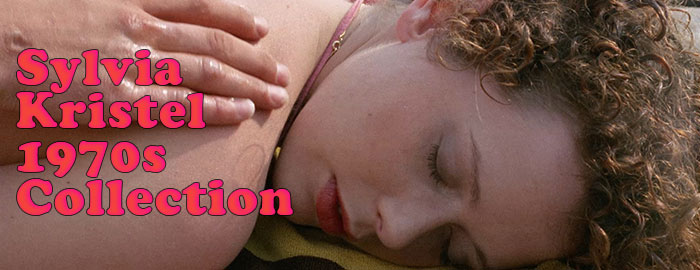

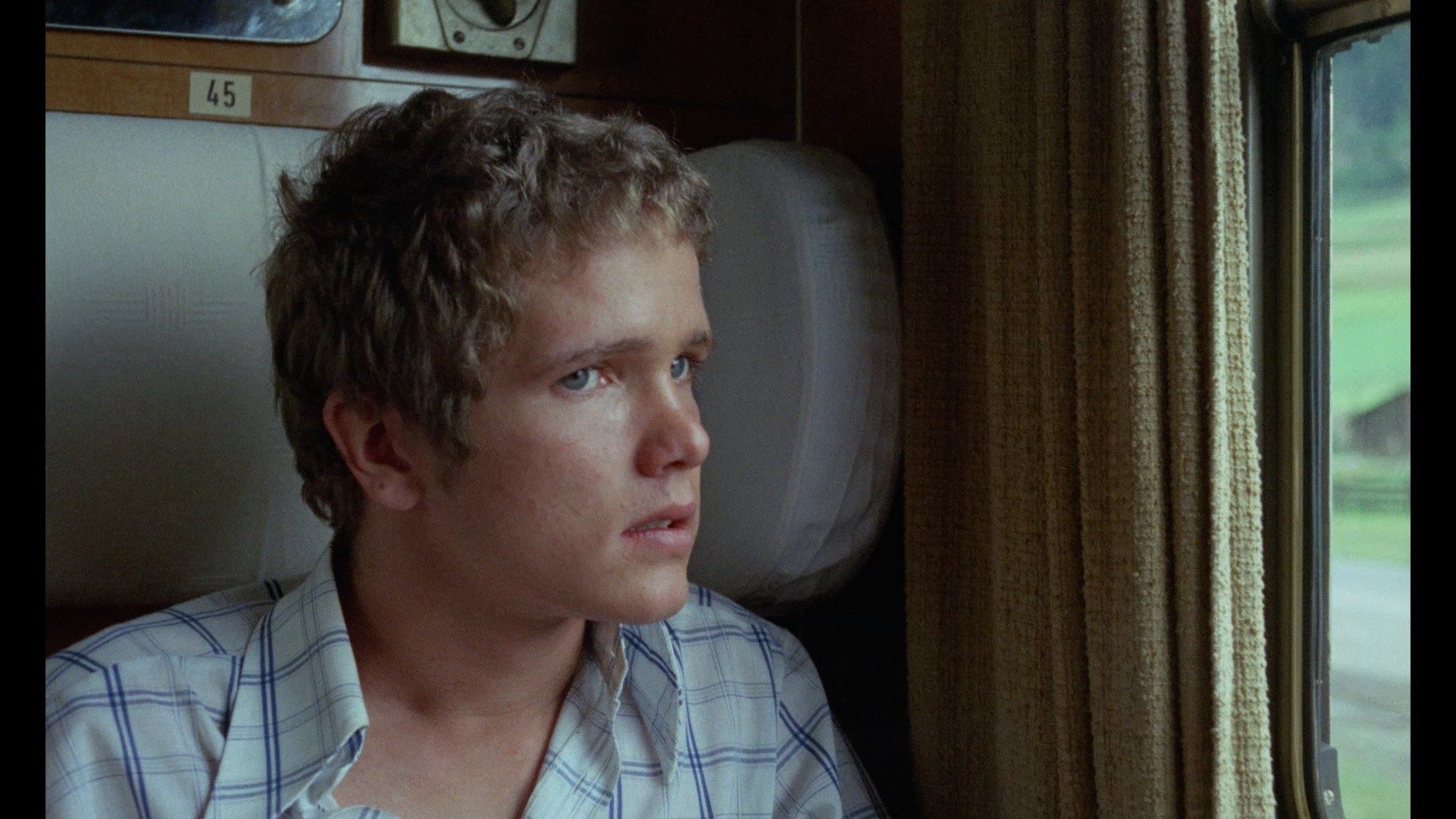 took the world by storm in the provocative French
took the world by storm in the provocative French 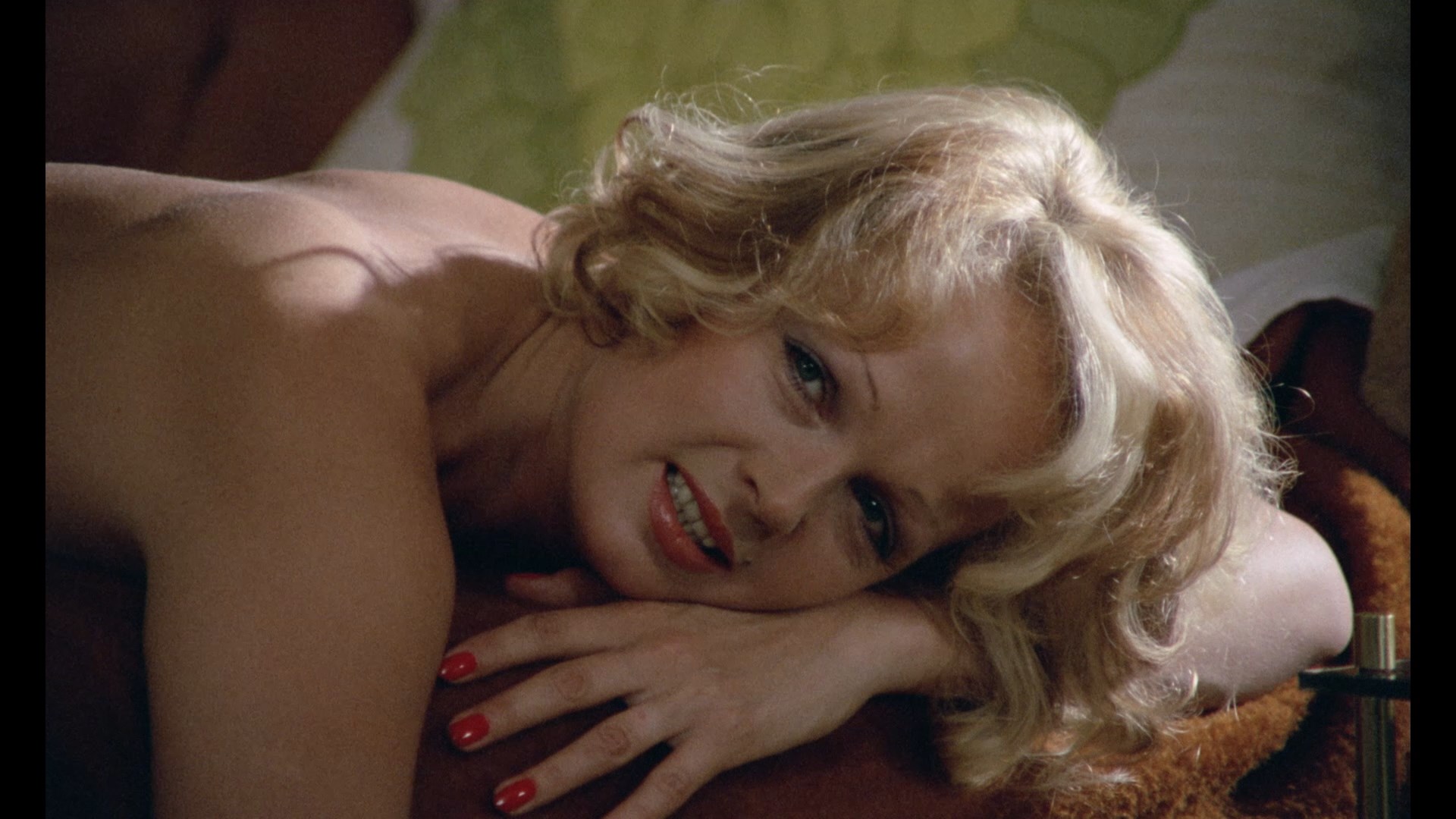 smash Emmanuelle directed by Just Jaeckin, Dutch-born actress and model Sylvia Kristel became not only a household name but an elegant softcore alternative to the porno chic craze. Though she would go on to reprise the role numerous times, Kristel also used the film's success to take on roles for a number of notable European directors while also turning up in some very unexpected places, such as Universal's The Concorde: Airport '79 and The Nude Bomb. With Kristel's films in frequent play on cable TV well into the early '90s, almost anything with her name proved marketable on VHS as well -- even earlier titles like the Dutch pseudo-giallo Because of the Cats. Saluting Kristel's 1970s roles well outside of her Emmanuelle persona is the 2022 separate Blu-ray and DVD sets from Cult Epics, the Sylvia Kristel 1970s Collection, timed to coincide with a biography of the star written by Jeremy Richey, who's also one of the participants in the numerous special features.
smash Emmanuelle directed by Just Jaeckin, Dutch-born actress and model Sylvia Kristel became not only a household name but an elegant softcore alternative to the porno chic craze. Though she would go on to reprise the role numerous times, Kristel also used the film's success to take on roles for a number of notable European directors while also turning up in some very unexpected places, such as Universal's The Concorde: Airport '79 and The Nude Bomb. With Kristel's films in frequent play on cable TV well into the early '90s, almost anything with her name proved marketable on VHS as well -- even earlier titles like the Dutch pseudo-giallo Because of the Cats. Saluting Kristel's 1970s roles well outside of her Emmanuelle persona is the 2022 separate Blu-ray and DVD sets from Cult Epics, the Sylvia Kristel 1970s Collection, timed to coincide with a biography of the star written by Jeremy Richey, who's also one of the participants in the numerous special features.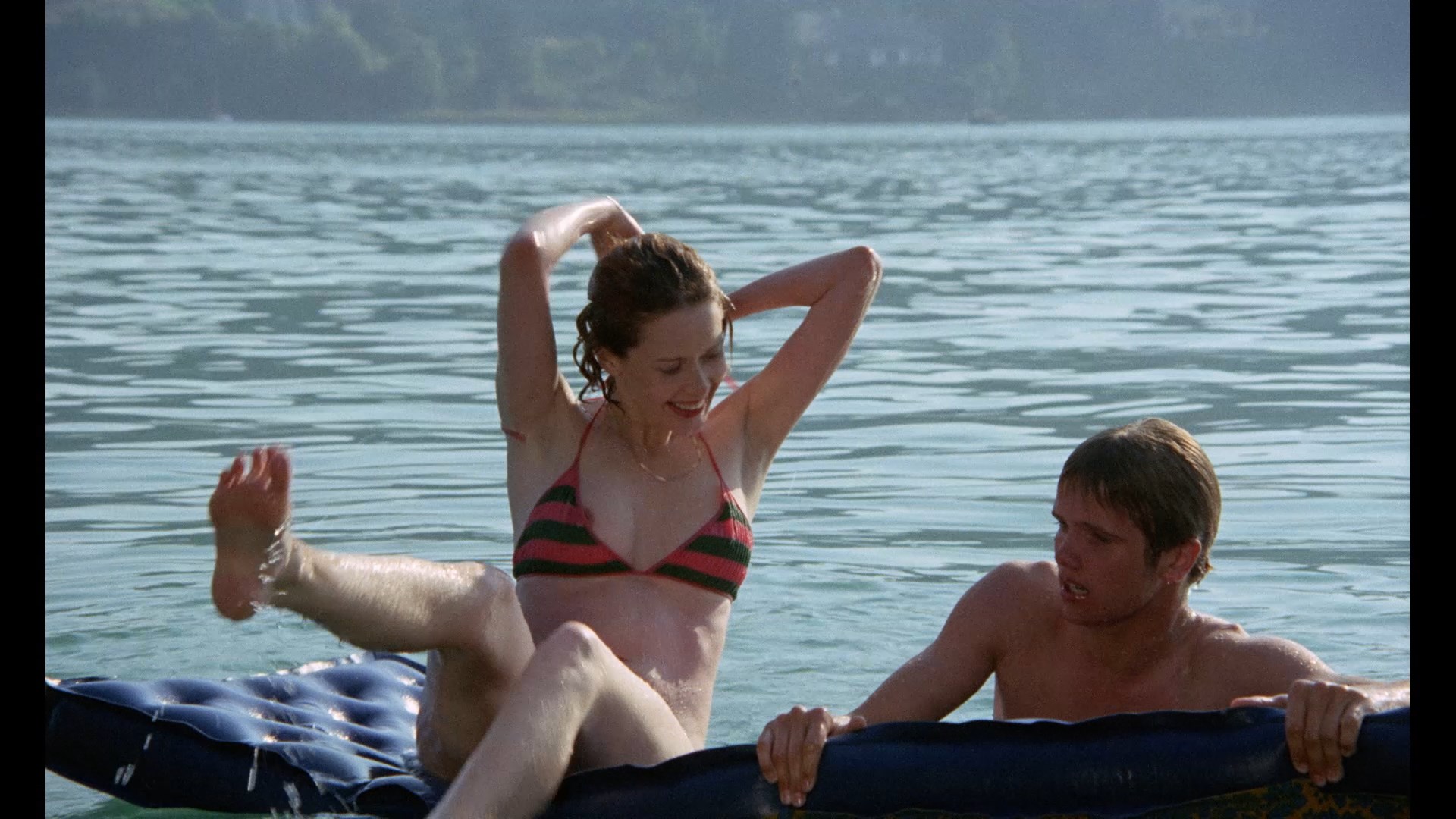 romp that made the rounds on VHS from Private Screenings back in the '80s. Pauli
romp that made the rounds on VHS from Private Screenings back in the '80s. Pauli 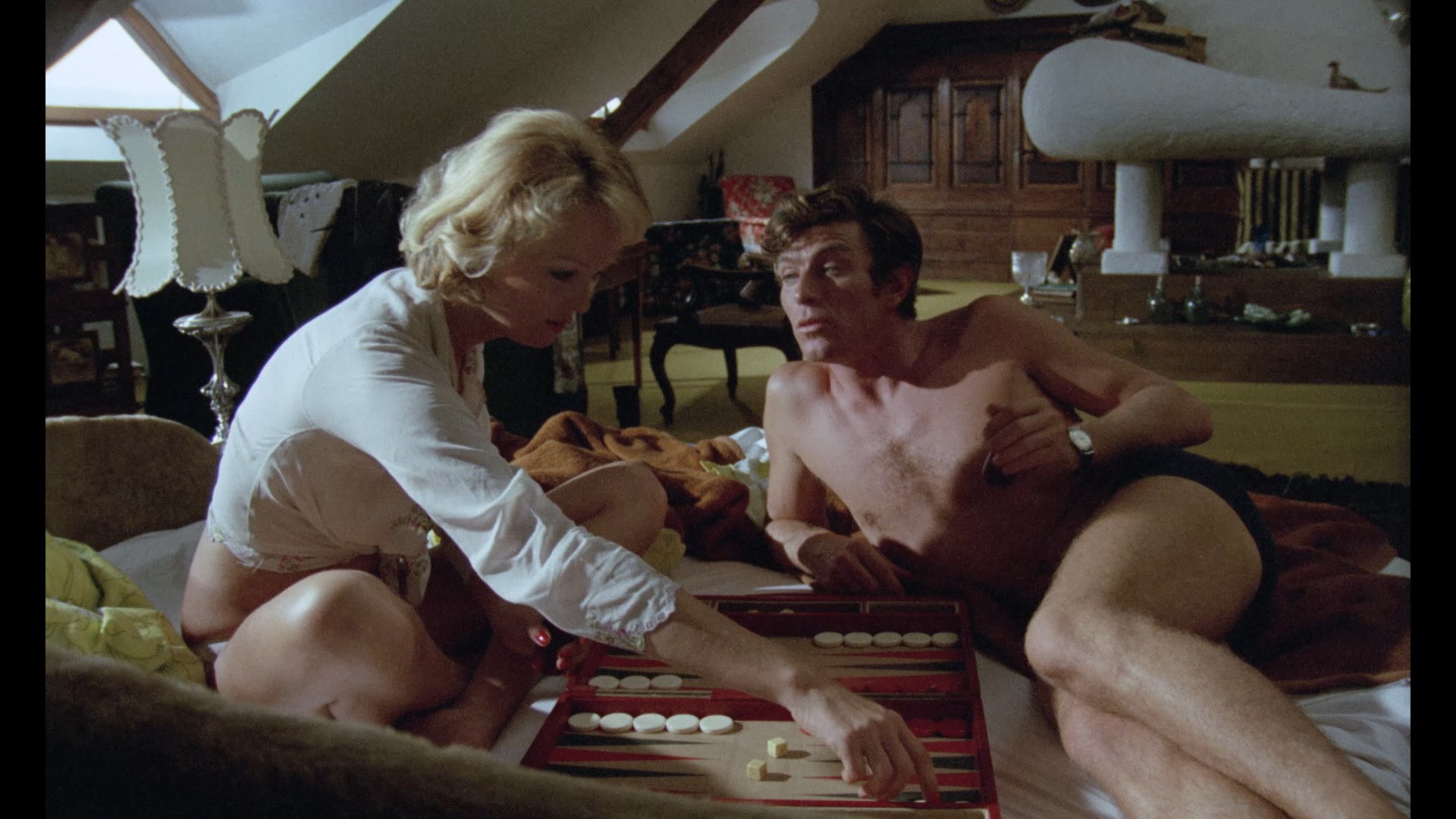 (Belle), or Patrick in the English-dubbed version, is taking a train to an Alpine town for a vacation with his father, Ralph (Bouillon), when he becomes transfixed by a blonde woman, Yvonne (Tordai), sleeping with her blouse half open. However, upon awakening Yvonne slips off to the bathroom for a tryst with another passenger, but that's hardly the most surprising thing about the journey. As it turns out, Yvonne is his dad's girlfriend, and they're going to spend the whole summer at a lake house together -- along with his tubby Uncle Alex (Berling), a composer who plays the piano naked outdoors, lesbian swinger Aunt Miriam (Hahn), and most appealingly, childhood friend Andrea (Kristel), who wants Pauli to be her first time. Of course, a game of sexual musical chairs quickly ensues with Pauli's vacation turning out to be a lot randier than expected.
(Belle), or Patrick in the English-dubbed version, is taking a train to an Alpine town for a vacation with his father, Ralph (Bouillon), when he becomes transfixed by a blonde woman, Yvonne (Tordai), sleeping with her blouse half open. However, upon awakening Yvonne slips off to the bathroom for a tryst with another passenger, but that's hardly the most surprising thing about the journey. As it turns out, Yvonne is his dad's girlfriend, and they're going to spend the whole summer at a lake house together -- along with his tubby Uncle Alex (Berling), a composer who plays the piano naked outdoors, lesbian swinger Aunt Miriam (Hahn), and most appealingly, childhood friend Andrea (Kristel), who wants Pauli to be her first time. Of course, a game of sexual musical chairs quickly ensues with Pauli's vacation turning out to be a lot randier than expected. 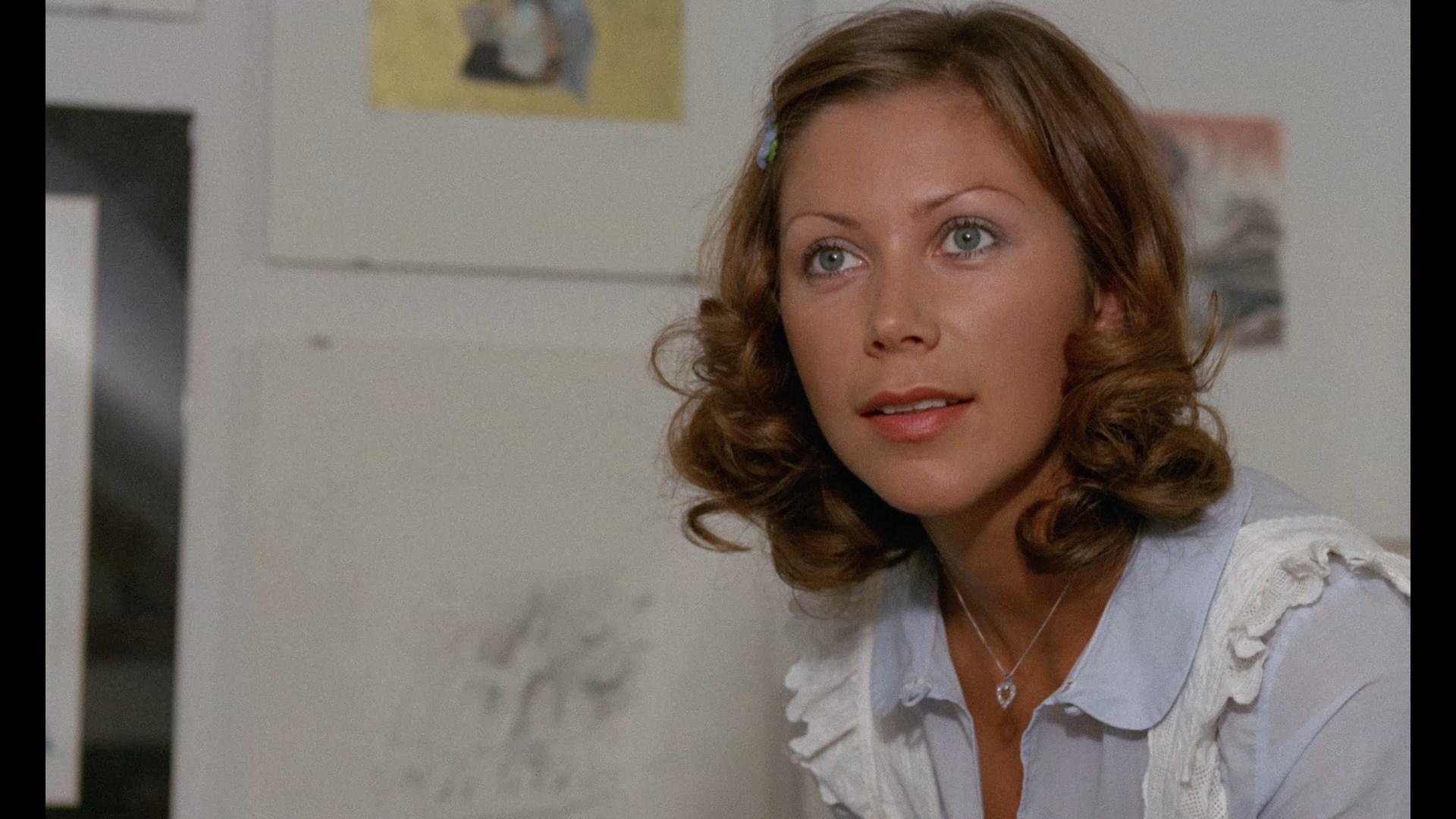 as you'll ever find. All the necessary
as you'll ever find. All the necessary 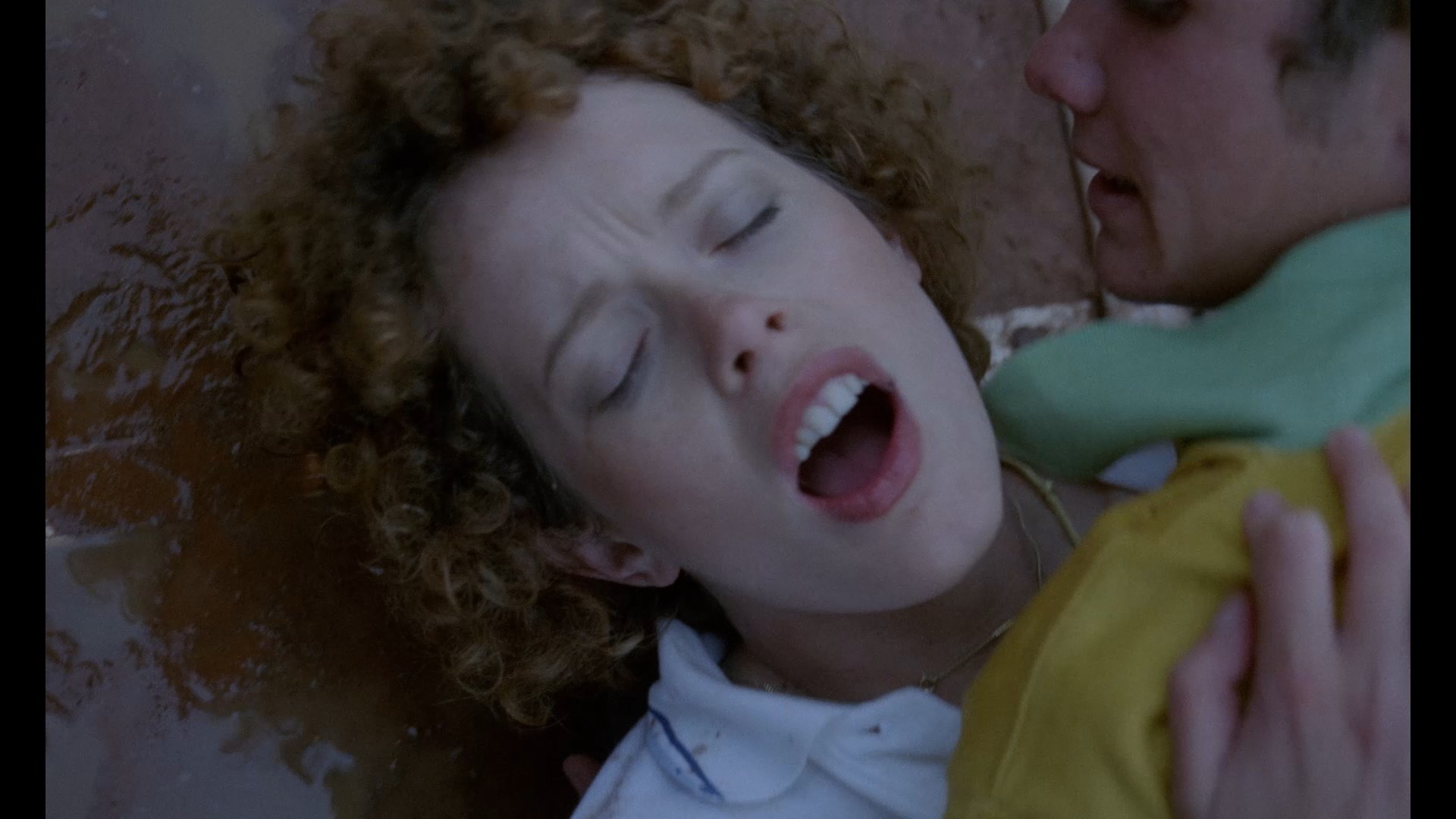 elements are here including plentiful soft sex scenes, goofball comedy, weirdly unsettling plot turns at times, and lots of casual nudity. It's also a very representative offering from director Sigi Rothemund, who churned out tons of German sex comedies like Summer Night Fever and Love Bavarian Style before shifting over to TV work. Thanks to Kristel's sudden success, this one was reissued under a baffling array of titles over the years; originally in German it was shown as Es war nicht die Nachtigall (or It Was the Nightingale), while the new Blu-ray transferred in 2K from the negative bears the reissue title Sylvia Kristel: Die Nichte der O (or Sylvia Kristel: The Niece of O), which must have thrown people given how decidedly non-kinky this really is apart from food as a sex accessory and unorthodox use of a tennis court. The image quality here is excellent with fine detail and very rich colors; it's a real treat for the eyes throughout. LPCM and DTS-HD MA German 2.0 tracks are included (reflecting how the film was actually shot) along with an LPCM 2.0 English dub, plus optional English subtitles. However, it's worth noting these are dubtitles which means "Pauli" is still referred to as "Patrick" and a lot of the dialogue is paraphrased at best. Richey provides a very thorough audio commentary reflecting tons of research for his book (including interviews with surviving personnel), noting how this is a key film in the Kristel filmography (she shot it while pregnant with her only child) and reeling off tons of trivia about the locations and cast. Also included are the English trailer, a 3m10s gallery of international posters and stills, and two bonus trailers for other films in the set.
elements are here including plentiful soft sex scenes, goofball comedy, weirdly unsettling plot turns at times, and lots of casual nudity. It's also a very representative offering from director Sigi Rothemund, who churned out tons of German sex comedies like Summer Night Fever and Love Bavarian Style before shifting over to TV work. Thanks to Kristel's sudden success, this one was reissued under a baffling array of titles over the years; originally in German it was shown as Es war nicht die Nachtigall (or It Was the Nightingale), while the new Blu-ray transferred in 2K from the negative bears the reissue title Sylvia Kristel: Die Nichte der O (or Sylvia Kristel: The Niece of O), which must have thrown people given how decidedly non-kinky this really is apart from food as a sex accessory and unorthodox use of a tennis court. The image quality here is excellent with fine detail and very rich colors; it's a real treat for the eyes throughout. LPCM and DTS-HD MA German 2.0 tracks are included (reflecting how the film was actually shot) along with an LPCM 2.0 English dub, plus optional English subtitles. However, it's worth noting these are dubtitles which means "Pauli" is still referred to as "Patrick" and a lot of the dialogue is paraphrased at best. Richey provides a very thorough audio commentary reflecting tons of research for his book (including interviews with surviving personnel), noting how this is a key film in the Kristel filmography (she shot it while pregnant with her only child) and reeling off tons of trivia about the locations and cast. Also included are the English trailer, a 3m10s gallery of international posters and stills, and two bonus trailers for other films in the set.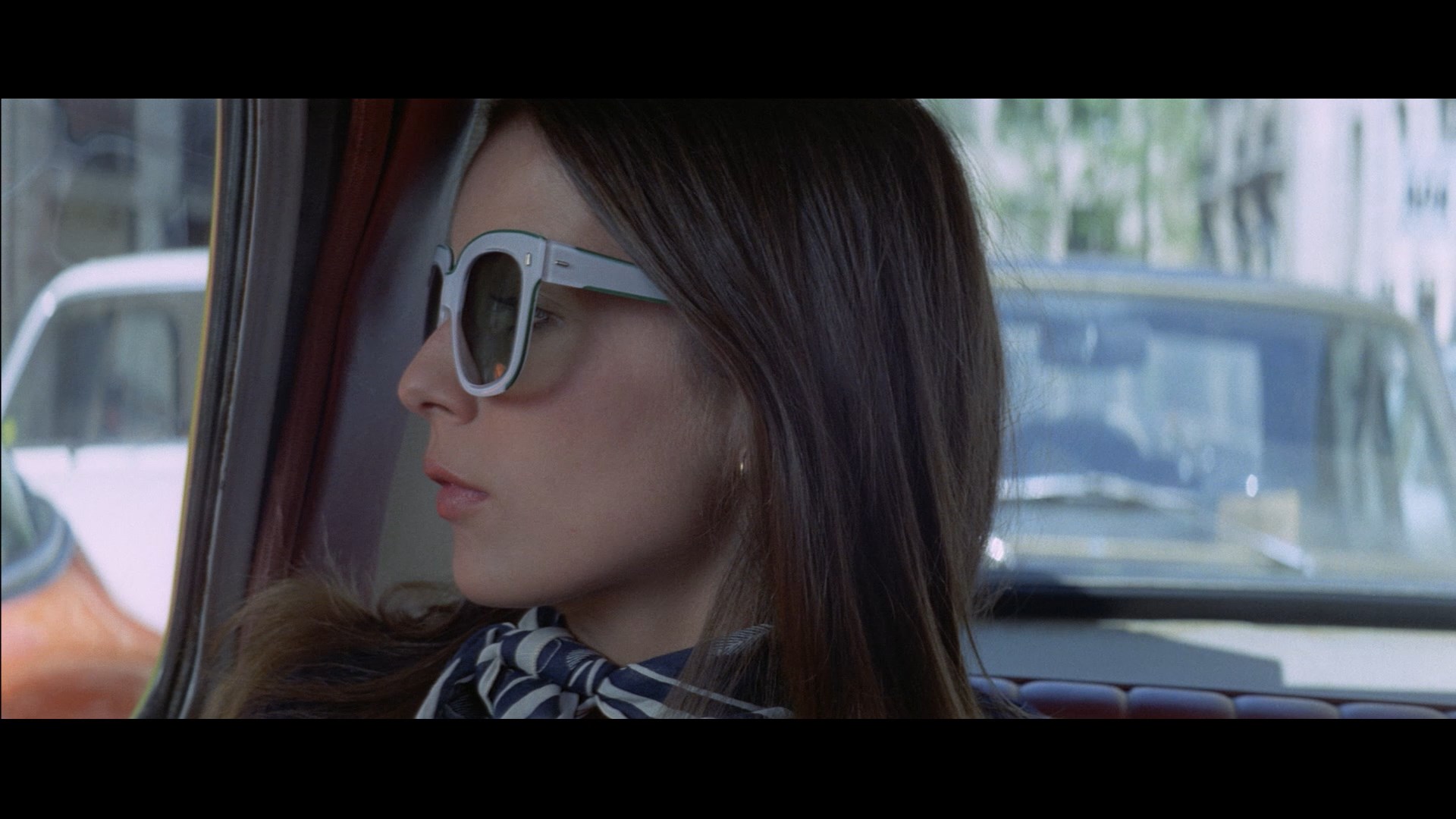 plays a much smaller role in another film released in '75 and arguably the biggest selling point in the whole set,
plays a much smaller role in another film released in '75 and arguably the biggest selling point in the whole set, 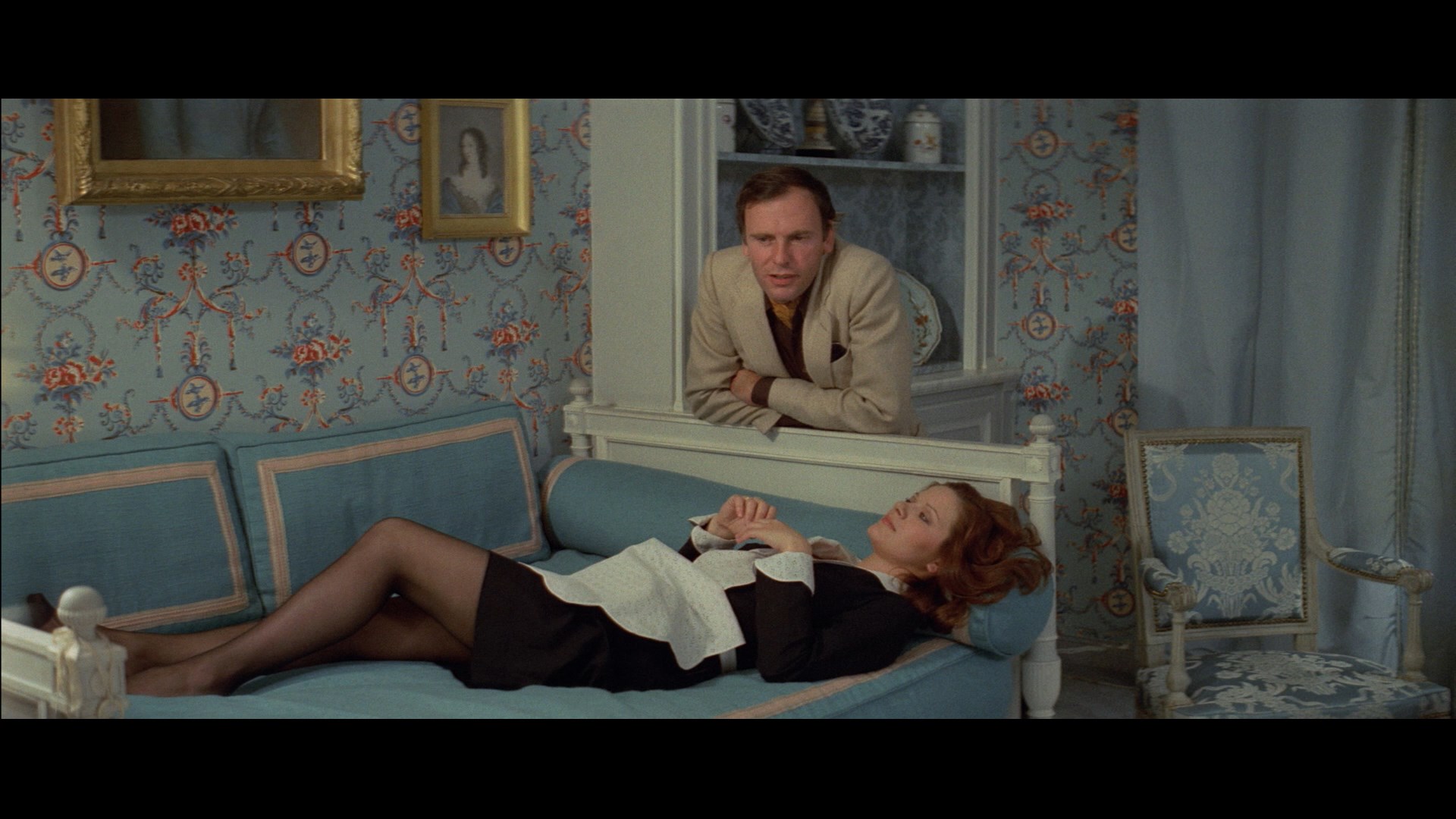 Alain Robbe-Grillet's Playing with Fire. A major missing piece in the collections of his work released a few years back on Blu-ray in the U.K. and U.S., this also brought Kristel aboard before she became a major global name and is by far the most challenging film in the set -- but in the best way possible if you're a Robbe-Grillet fan. This was the last film he made with frequent leading man and French New Wave icon Jean-Louis Trintignant (as well as his most lavishly budgeted production), and once again it's a playful and perverse cinematic game that toys with the audience's sense of linear narrative and social propriety.
Alain Robbe-Grillet's Playing with Fire. A major missing piece in the collections of his work released a few years back on Blu-ray in the U.K. and U.S., this also brought Kristel aboard before she became a major global name and is by far the most challenging film in the set -- but in the best way possible if you're a Robbe-Grillet fan. This was the last film he made with frequent leading man and French New Wave icon Jean-Louis Trintignant (as well as his most lavishly budgeted production), and once again it's a playful and perverse cinematic game that toys with the audience's sense of linear narrative and social propriety.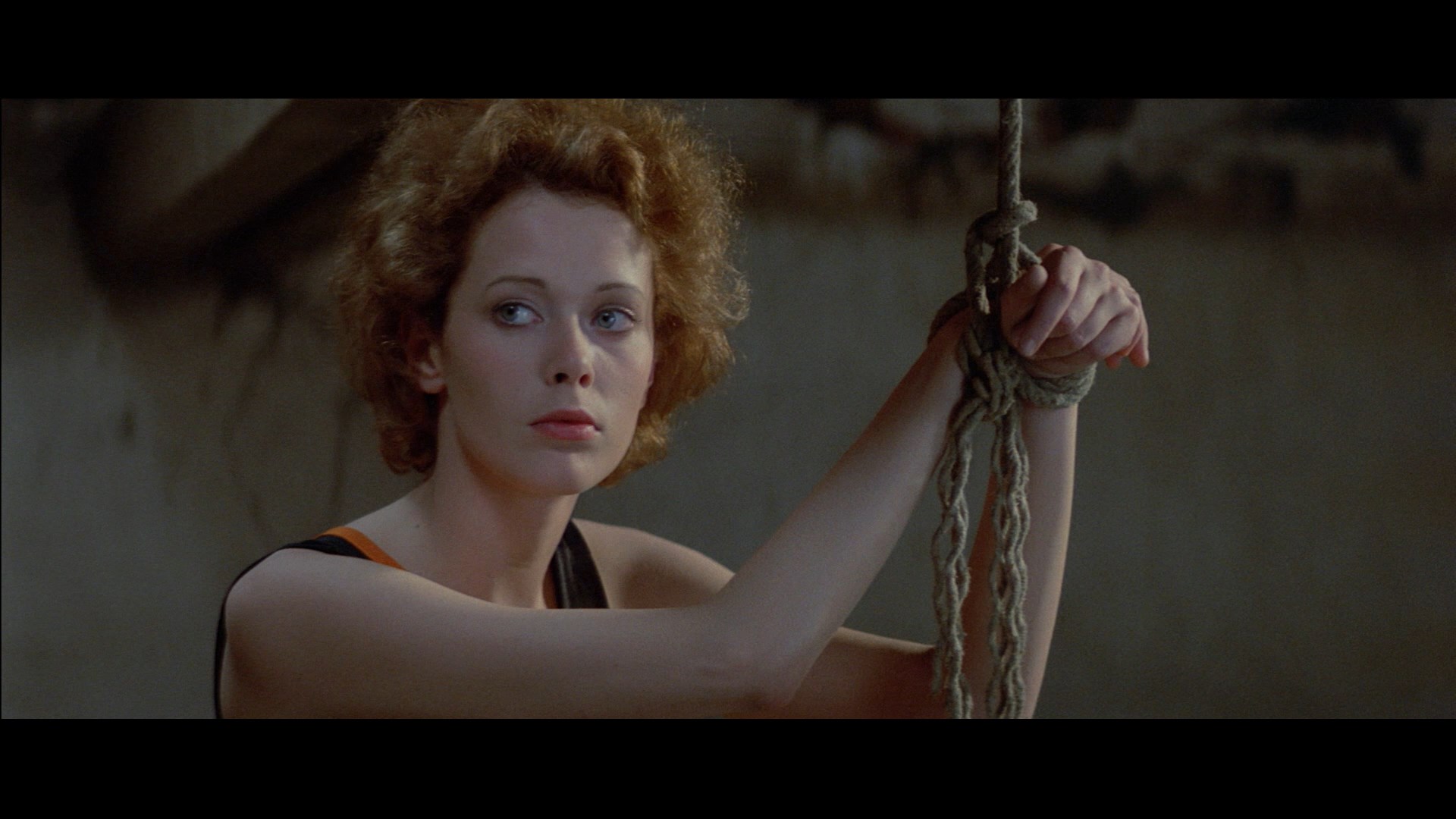 be
be 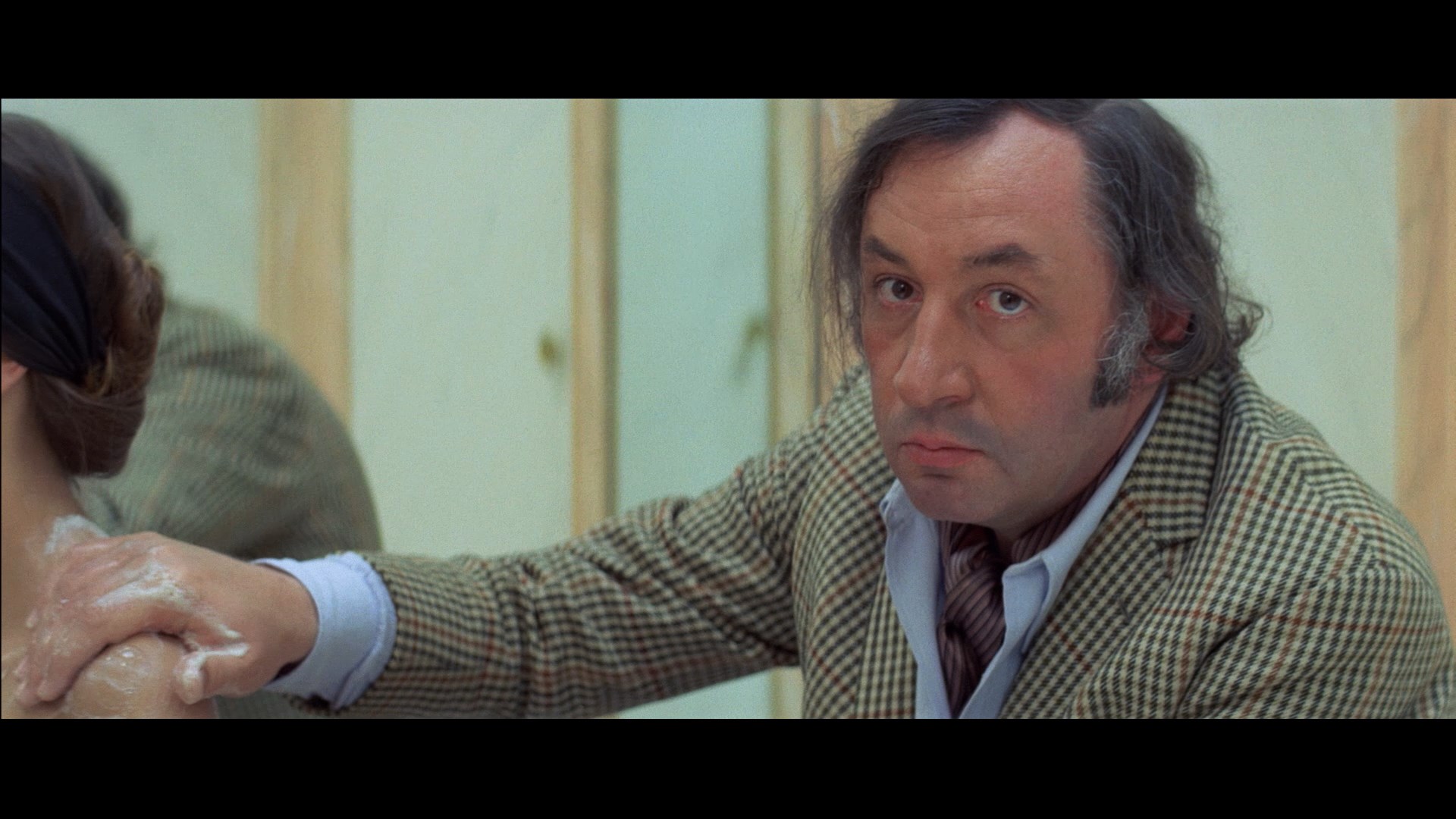 avoiding. The film is frequently interrupted for asides involving disturbing noises in the background, various erotic shenanigans that only very rarely get to the sex, and repeated canine imagery that culminates in one of the most audacious (and thankfully very simulated) images of the director's career.
avoiding. The film is frequently interrupted for asides involving disturbing noises in the background, various erotic shenanigans that only very rarely get to the sex, and repeated canine imagery that culminates in one of the most audacious (and thankfully very simulated) images of the director's career.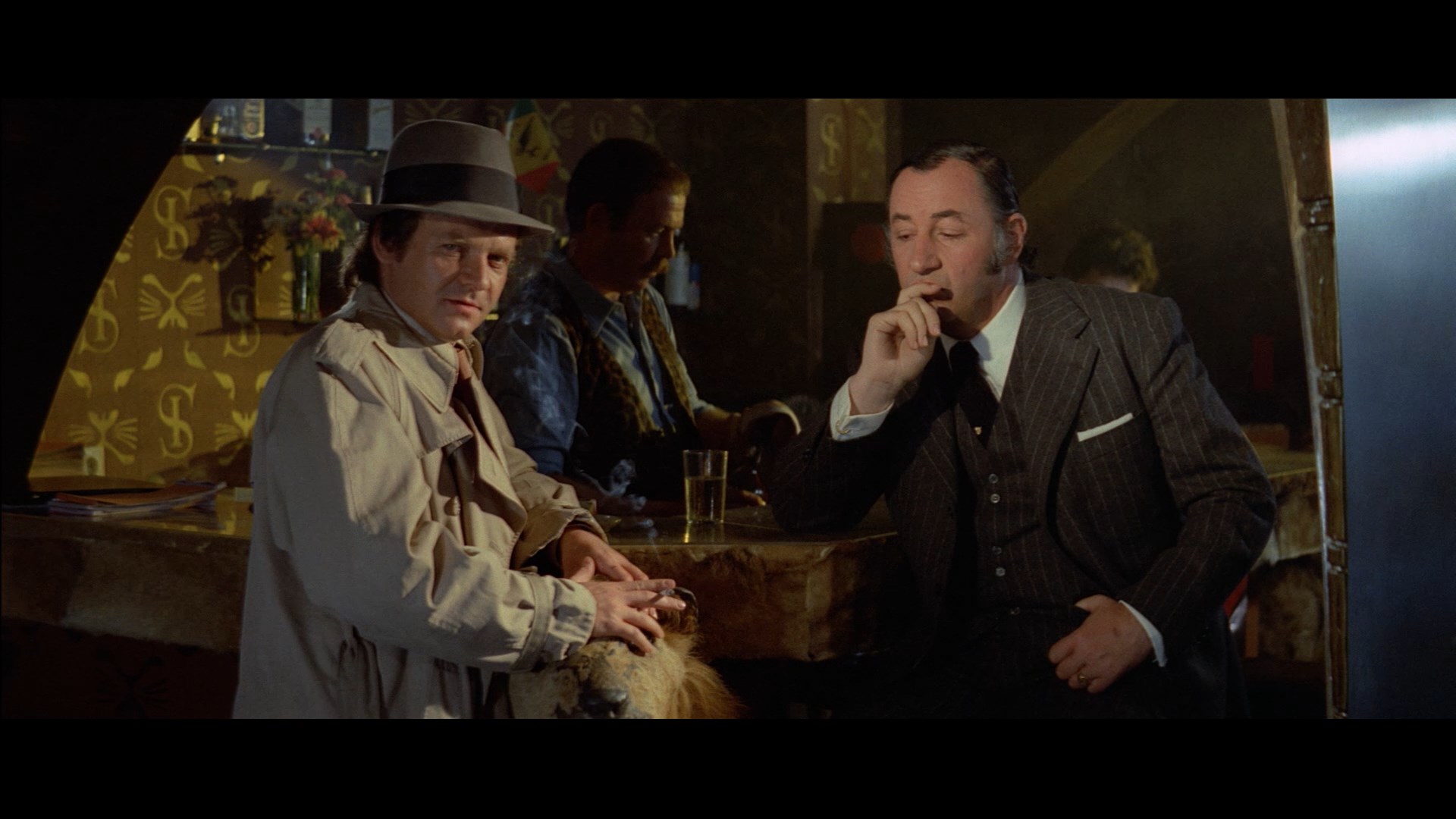 with a French DVD turning out without subs in 2013 as part of a nine-disc set of the director's films from Carlotta Films. The Cult Epics Blu-ray appears to be the first legit English-subtitled release on
with a French DVD turning out without subs in 2013 as part of a nine-disc set of the director's films from Carlotta Films. The Cult Epics Blu-ray appears to be the first legit English-subtitled release on 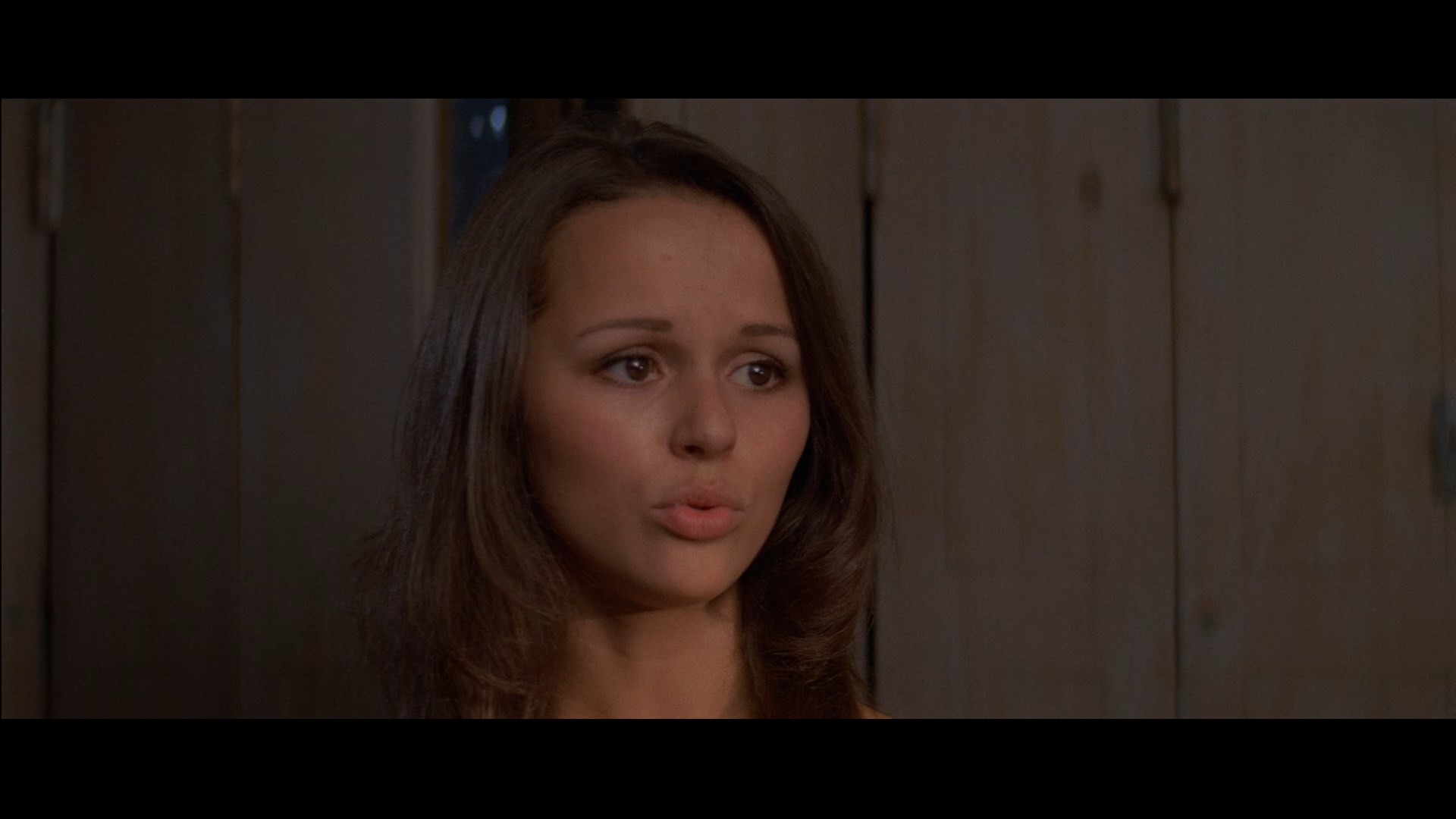 video anywhere, taken from a very nice master supplied by Studio Canal; it looks very strong throughout with no significant issues to report. Again you get DTS-HD MA and LPCM 2.0 tracks here (French mono with optional English subtitles), both of which sound fine. A new audio commentary by Tim Lucas is as rich and informative as his prior Robbe-Grillet tracks as he goes into the film's anamorphic lensing (against the director's preferences), the difficulties with Noiret and Alvina during the production, the impact of opera on the director's childhood and erotic imagination, and plenty more. A video interview (5m16s) with the late filmmaker's wife and author of The Image, Catherine Robbe-Grillet, covers the recurring theme of kidnapping in his work, the friction with Noiret (who was referred by Trintignant), the shooting locations, and the theatrical nature of the nude scenes. Also included is a gallery of posters and lobby cards.
video anywhere, taken from a very nice master supplied by Studio Canal; it looks very strong throughout with no significant issues to report. Again you get DTS-HD MA and LPCM 2.0 tracks here (French mono with optional English subtitles), both of which sound fine. A new audio commentary by Tim Lucas is as rich and informative as his prior Robbe-Grillet tracks as he goes into the film's anamorphic lensing (against the director's preferences), the difficulties with Noiret and Alvina during the production, the impact of opera on the director's childhood and erotic imagination, and plenty more. A video interview (5m16s) with the late filmmaker's wife and author of The Image, Catherine Robbe-Grillet, covers the recurring theme of kidnapping in his work, the friction with Noiret (who was referred by Trintignant), the shooting locations, and the theatrical nature of the nude scenes. Also included is a gallery of posters and lobby cards.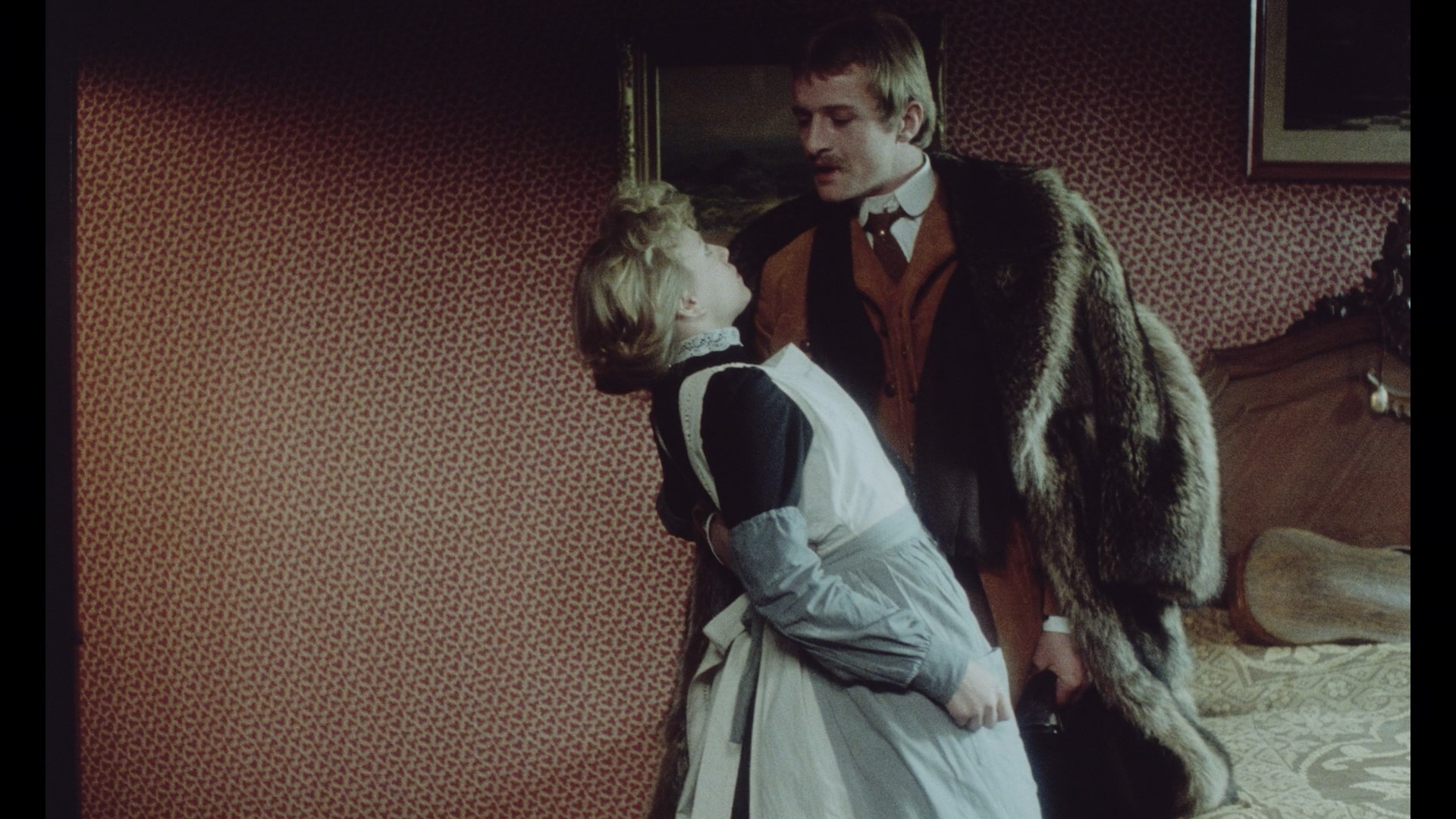 Kristel
Kristel 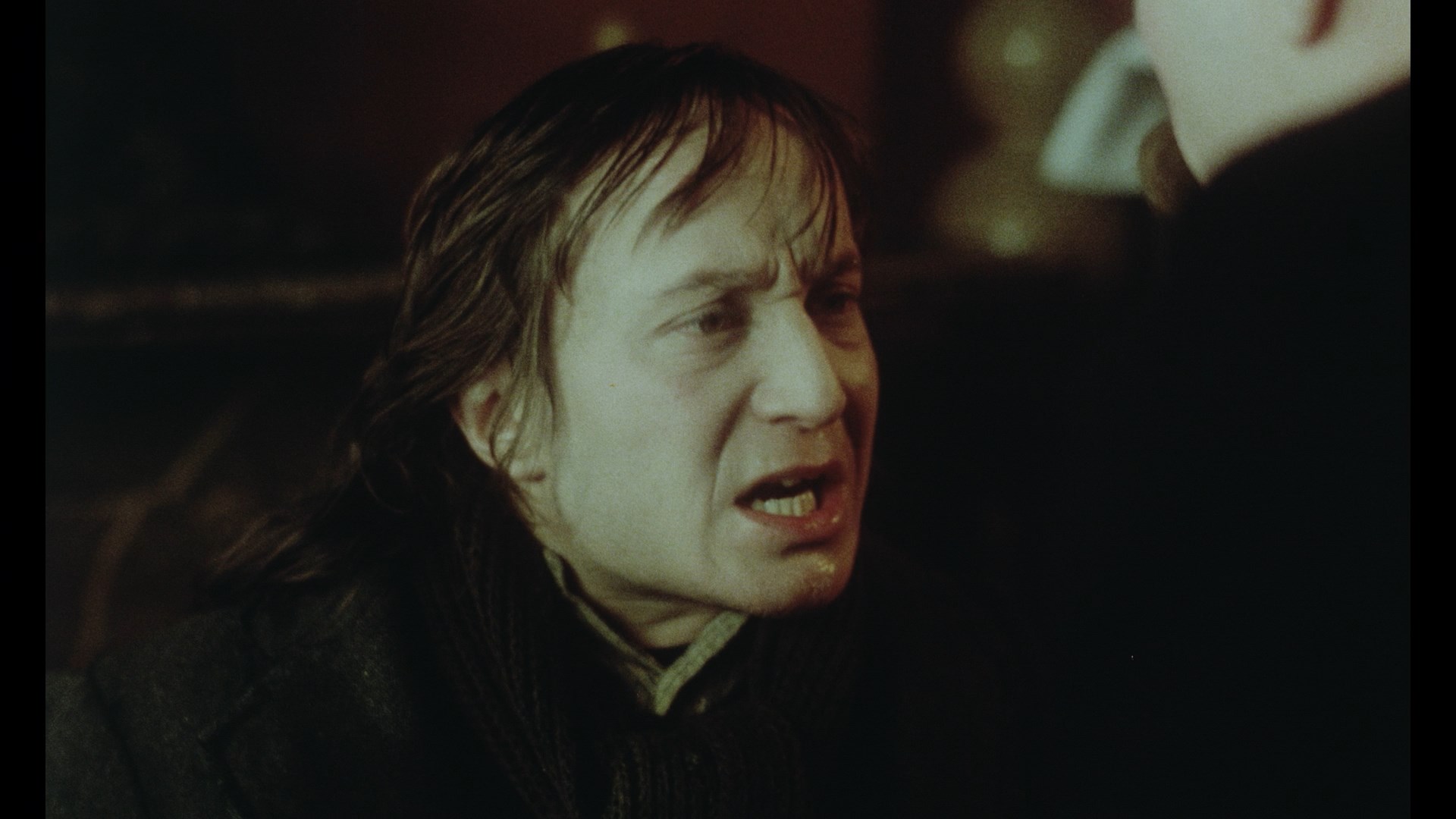 most definitely returns to leading lady status with 1978's Mysteries, a prestige Dutch production pairing her up with another fearless star, Rutger Hauer, who had forged his own sexually candid path to fame in Paul Verhoeven's Turkish Delight. Based on an enigmatic but popular novel by Knut Hamseun and shot on the Isle of Man with an international cast, the film failed to secure much theatrical distribution outside of its native country and, despite a handful of nearly unwatchable (and usually very cut) fuzzy VHS releases, it's become something of an odd footnote in the careers of its stars. That's a shame as it's a fascinating and sometimes striking art film with a unique atmosphere and sometimes beautiful visual highlights.
most definitely returns to leading lady status with 1978's Mysteries, a prestige Dutch production pairing her up with another fearless star, Rutger Hauer, who had forged his own sexually candid path to fame in Paul Verhoeven's Turkish Delight. Based on an enigmatic but popular novel by Knut Hamseun and shot on the Isle of Man with an international cast, the film failed to secure much theatrical distribution outside of its native country and, despite a handful of nearly unwatchable (and usually very cut) fuzzy VHS releases, it's become something of an odd footnote in the careers of its stars. That's a shame as it's a fascinating and sometimes striking art film with a unique atmosphere and sometimes beautiful visual highlights. 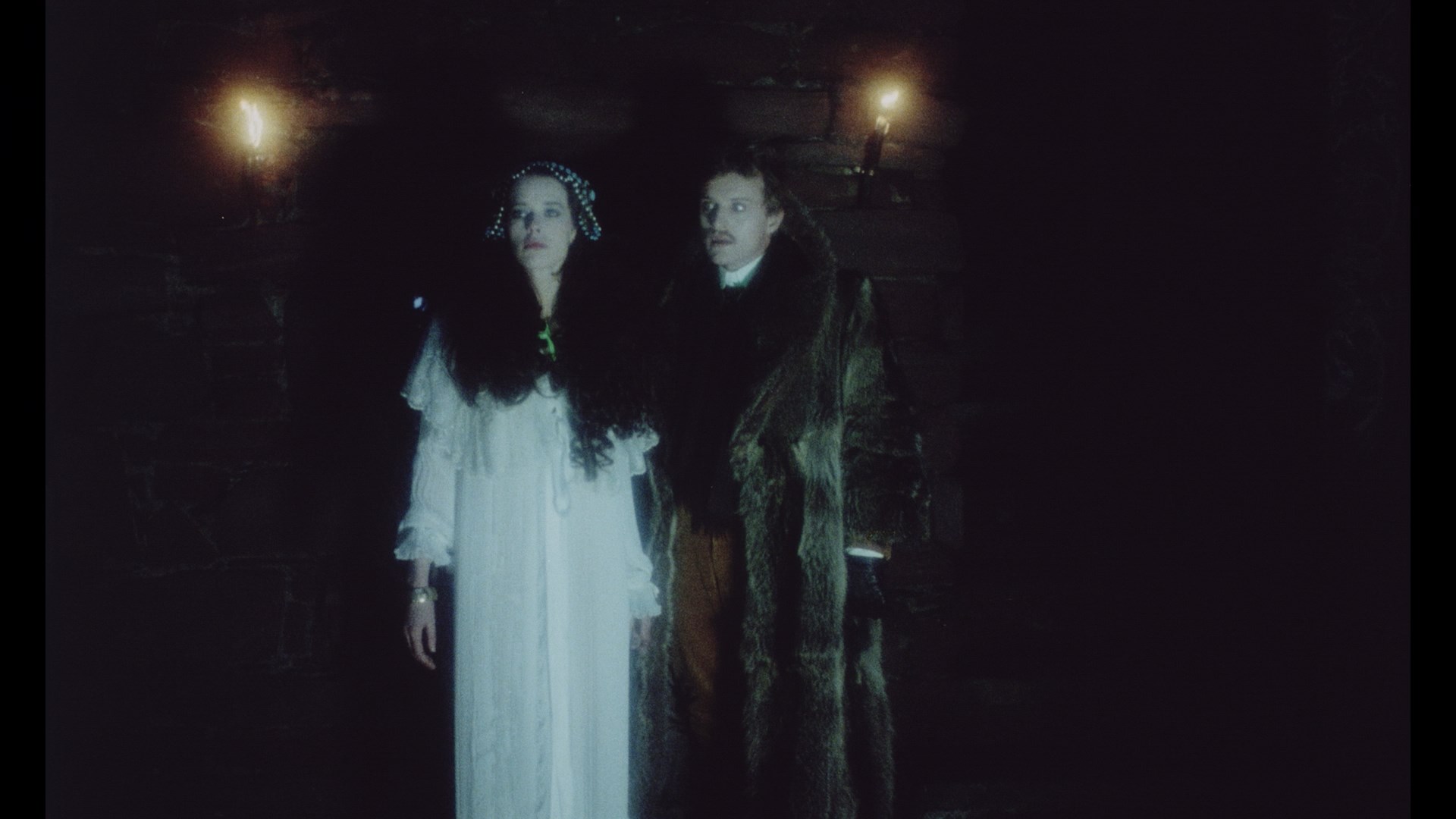 and becomes entangled with two very
and becomes entangled with two very 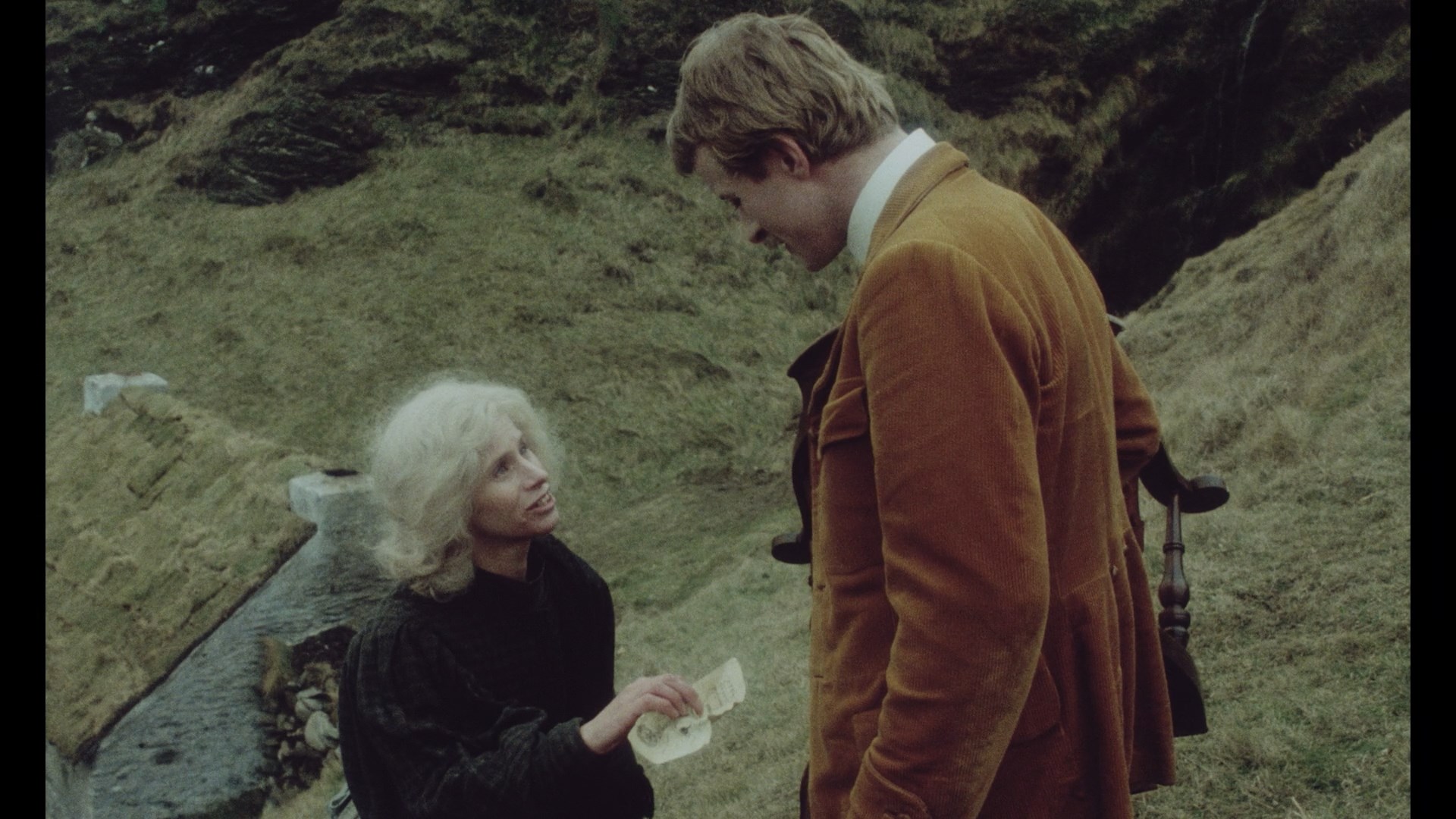 different women, the haughty vicar's daughter Dany (Kristel) and rough-hewn Martha (Tushingham). There's very little forward momentum to the plot here; narration stitches it all together more or less, but mostly this is a sensory experience with a beautiful soundtrack by Laurens van Rooyen and striking cinematography by Robby Müller (Breaking the Waves, Repo Man).
different women, the haughty vicar's daughter Dany (Kristel) and rough-hewn Martha (Tushingham). There's very little forward momentum to the plot here; narration stitches it all together more or less, but mostly this is a sensory experience with a beautiful soundtrack by Laurens van Rooyen and striking cinematography by Robby Müller (Breaking the Waves, Repo Man). 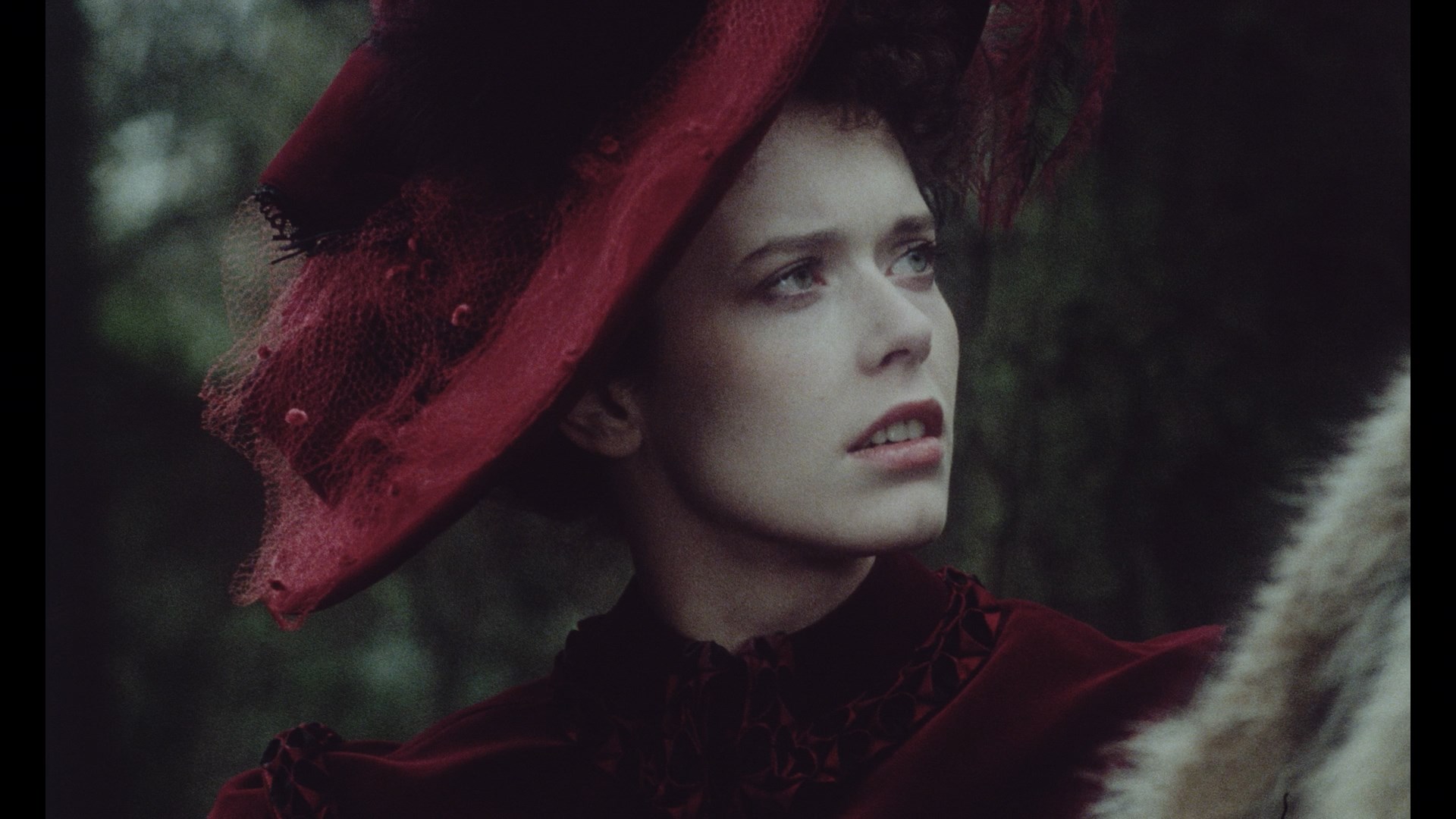 Quality-wise this is definitely the least of the set, due to the fact that the film was shot with a deliberately gauzy and somewhat dark, clogged appearance, as well as the fact that this appears to be transferred
Quality-wise this is definitely the least of the set, due to the fact that the film was shot with a deliberately gauzy and somewhat dark, clogged appearance, as well as the fact that this appears to be transferred 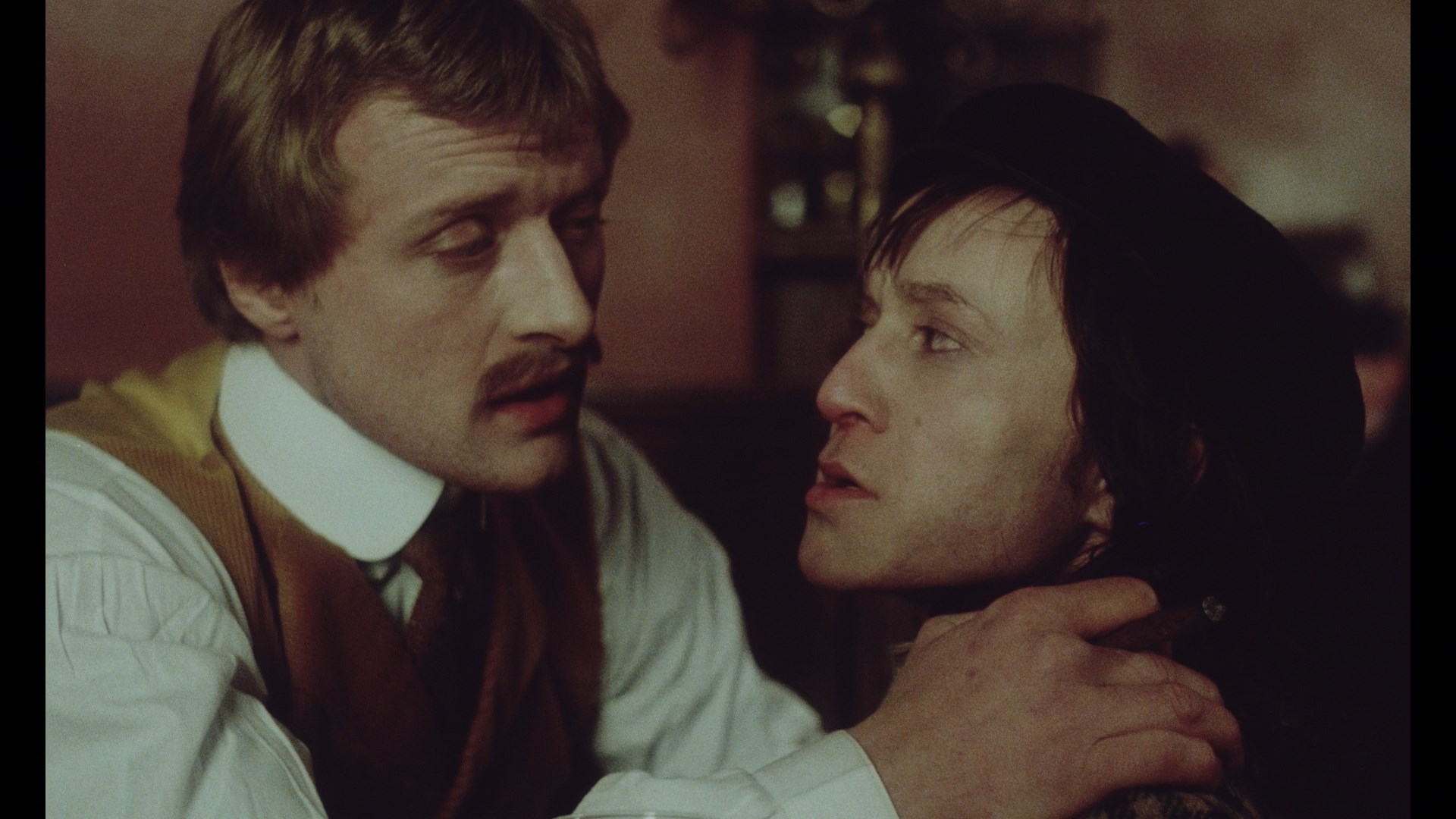 from a print. It's still leagues ahead of what we've had before, but keep your expectations in check here. This time you get two audio commentaries, the first with Dutch film scholar Peter W. Verstraten (understandably contextualizing this among the '70s Dutch cinema wave with lots of background about Hauer and the technical personnel) and the second with Richey, who goes into a lot about the casting process, Kristel's life and career at the time, and the arduous filming process posed by the natural locations. Also included is a vintage Dutch making-of featurette (6m27s) showing the director and cast at work, along with brief interviews with them in between takes chatting about the production. Perhaps the most interesting bit is Hauer talking about learning his growing comfort with English, the language in which he would go on to speak for his lengthy Hollywood career about to come. Also included are the original trailer and a poster and photo gallery.
from a print. It's still leagues ahead of what we've had before, but keep your expectations in check here. This time you get two audio commentaries, the first with Dutch film scholar Peter W. Verstraten (understandably contextualizing this among the '70s Dutch cinema wave with lots of background about Hauer and the technical personnel) and the second with Richey, who goes into a lot about the casting process, Kristel's life and career at the time, and the arduous filming process posed by the natural locations. Also included is a vintage Dutch making-of featurette (6m27s) showing the director and cast at work, along with brief interviews with them in between takes chatting about the production. Perhaps the most interesting bit is Hauer talking about learning his growing comfort with English, the language in which he would go on to speak for his lengthy Hollywood career about to come. Also included are the original trailer and a poster and photo gallery. 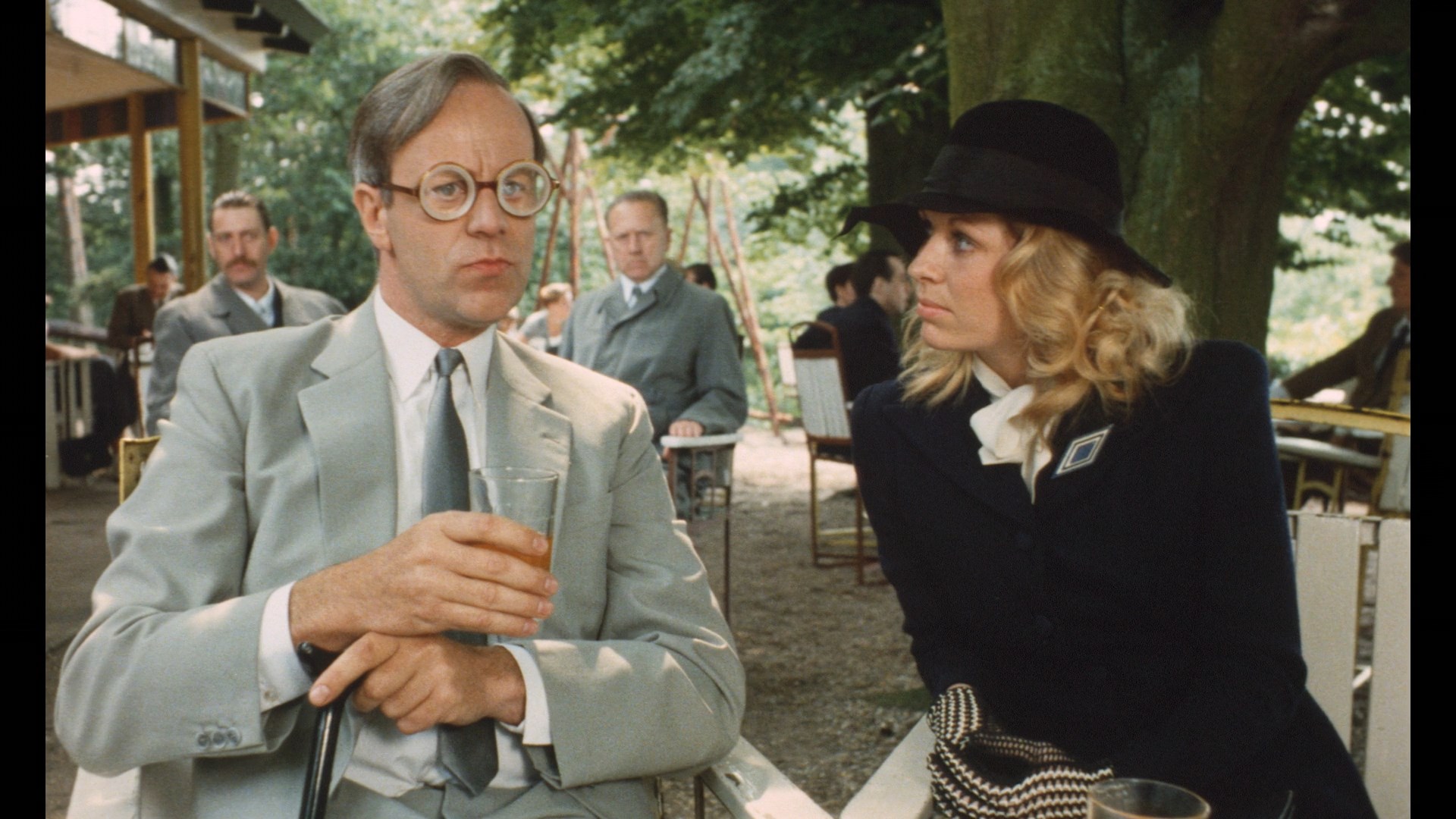
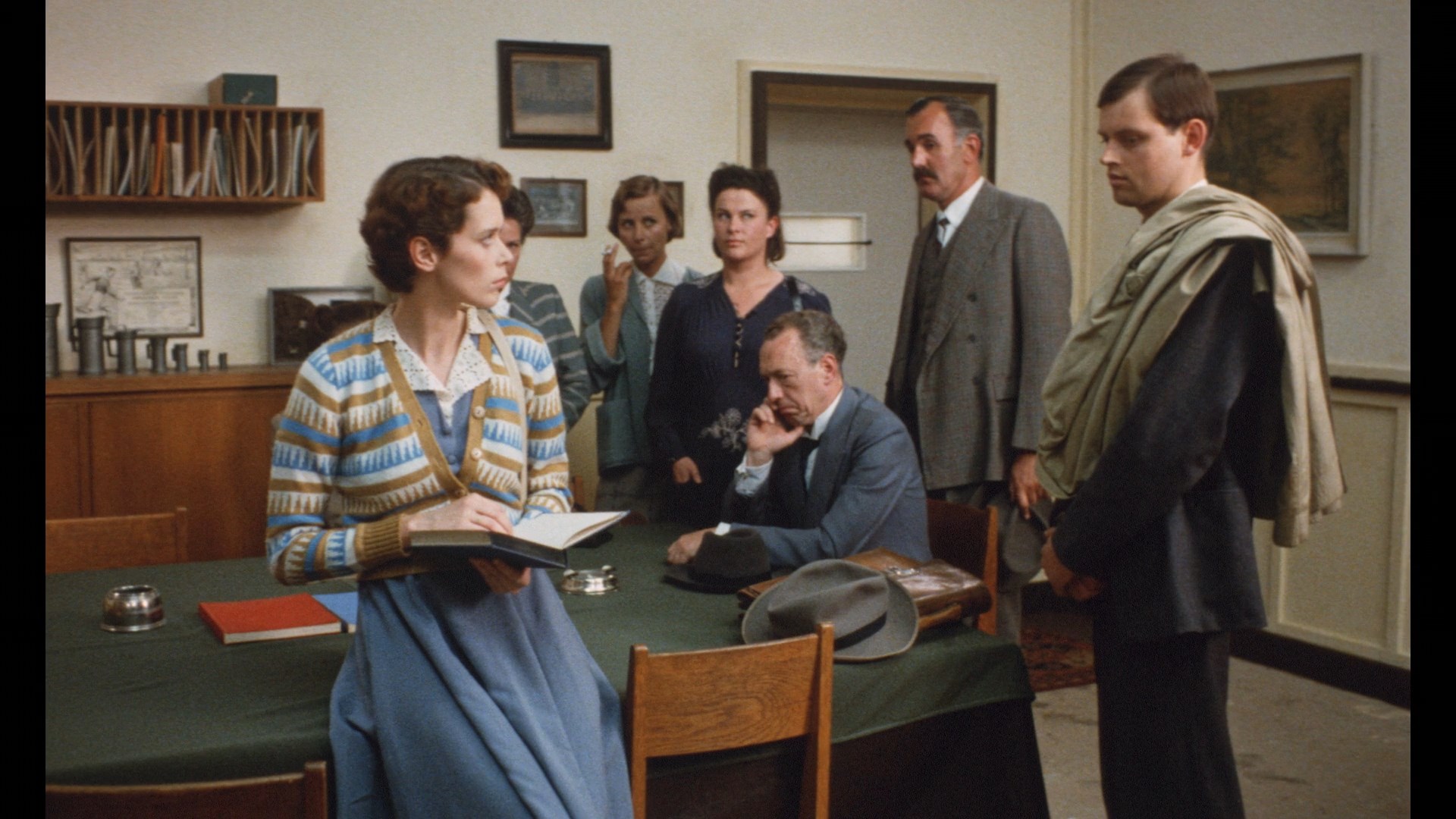 Speaking of ambitious Dutch productions, the same year's Pastorale 1943 is a sprawling ensemble piece from director and onetime Pim de la Parra collaborator WIm Verstappen (Blue Movie) set at the height of the German occupation in Holland. Common citizens of varying social classes have gotten together to form an underground resistance, though their lack of skill and cohesion proves to be a major stumbling block as they try to come up with a plan to make a dent in their oppressors' plans.
Speaking of ambitious Dutch productions, the same year's Pastorale 1943 is a sprawling ensemble piece from director and onetime Pim de la Parra collaborator WIm Verstappen (Blue Movie) set at the height of the German occupation in Holland. Common citizens of varying social classes have gotten together to form an underground resistance, though their lack of skill and cohesion proves to be a major stumbling block as they try to come up with a plan to make a dent in their oppressors' plans. 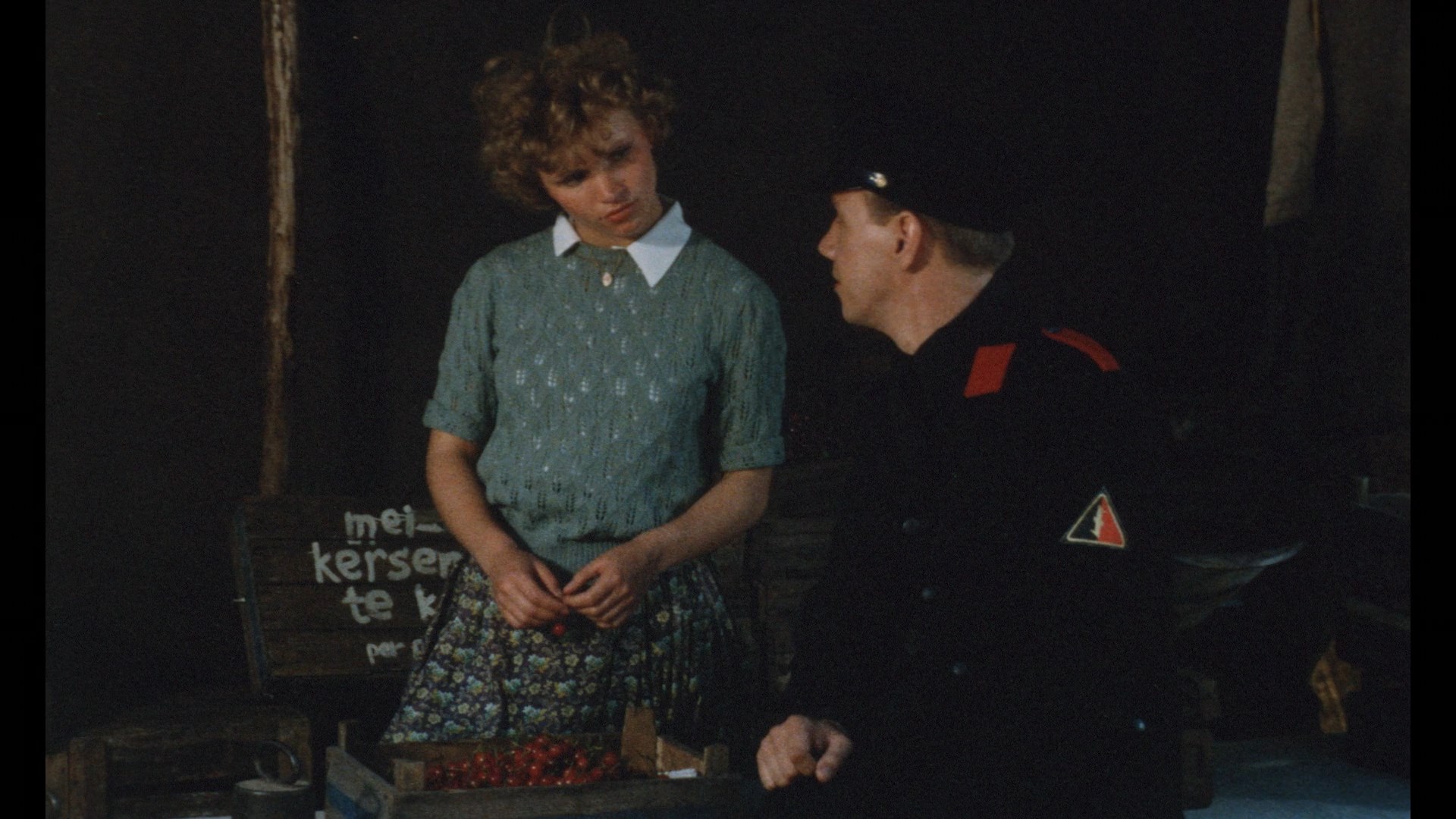 into
into 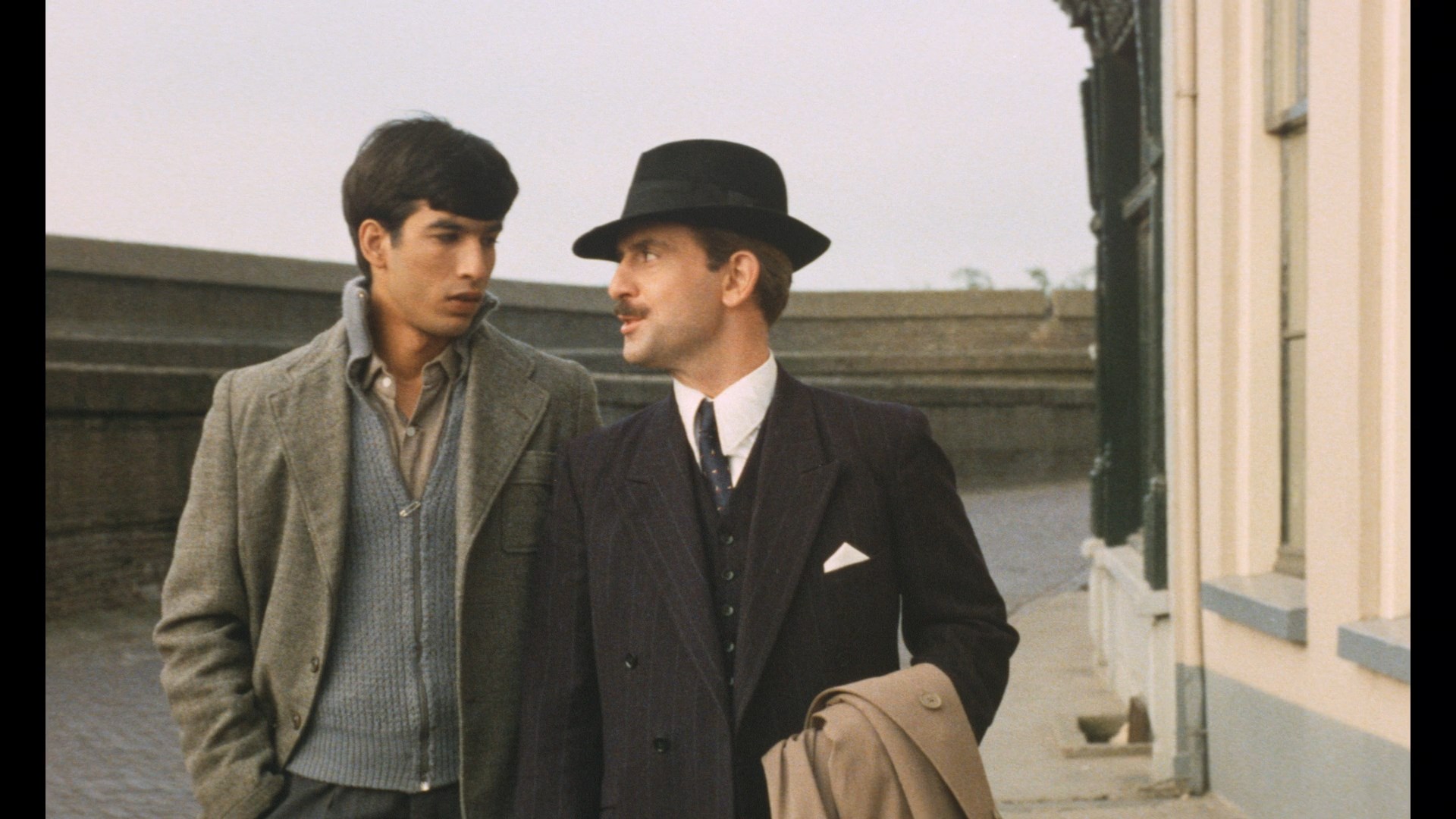 a plan to take out a collaborator in their midst. Unfortunately that plan requires a level of craftiness and planning that could be well beyond their means. Mixing offbeat humor into the mix without losing sight of the inherent tragedy of the situation, the film is based on a 1945 novel by lauded Dutch writer Simon Vestdjik (which even gets a verbal shout out by the narrator in the opening moments of the film), but it's likely this was also inspired by the recent spate of World War II ensemble films like the "attempted assassination in a small town" thriller, 1976's The Eagle Has Landed. That means you get a raft of notable faces from Holland's acting scene including Rutger Hauer in a scene-stealing extended cameo as a Nazi officer, Renée Soutendijk just before her big breakthroughs with Paul Verhoeven in Spetters and The Fourth Man, and of course Kristel in a handful of scenes as a humble librarian turned courier.
a plan to take out a collaborator in their midst. Unfortunately that plan requires a level of craftiness and planning that could be well beyond their means. Mixing offbeat humor into the mix without losing sight of the inherent tragedy of the situation, the film is based on a 1945 novel by lauded Dutch writer Simon Vestdjik (which even gets a verbal shout out by the narrator in the opening moments of the film), but it's likely this was also inspired by the recent spate of World War II ensemble films like the "attempted assassination in a small town" thriller, 1976's The Eagle Has Landed. That means you get a raft of notable faces from Holland's acting scene including Rutger Hauer in a scene-stealing extended cameo as a Nazi officer, Renée Soutendijk just before her big breakthroughs with Paul Verhoeven in Spetters and The Fourth Man, and of course Kristel in a handful of scenes as a humble librarian turned courier.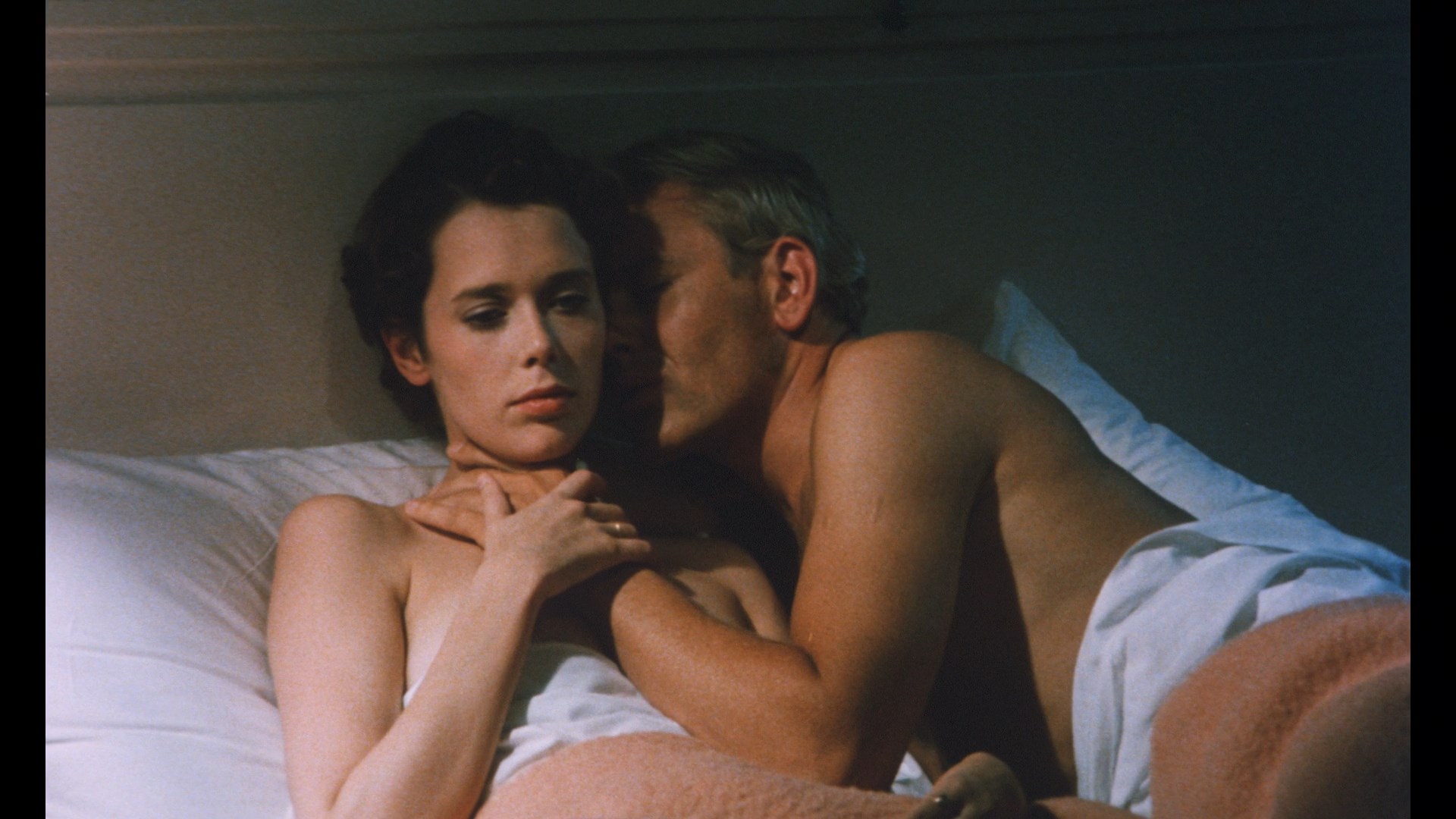 quite nice and presumably reflects the intended look of the film (not that there's much
quite nice and presumably reflects the intended look of the film (not that there's much 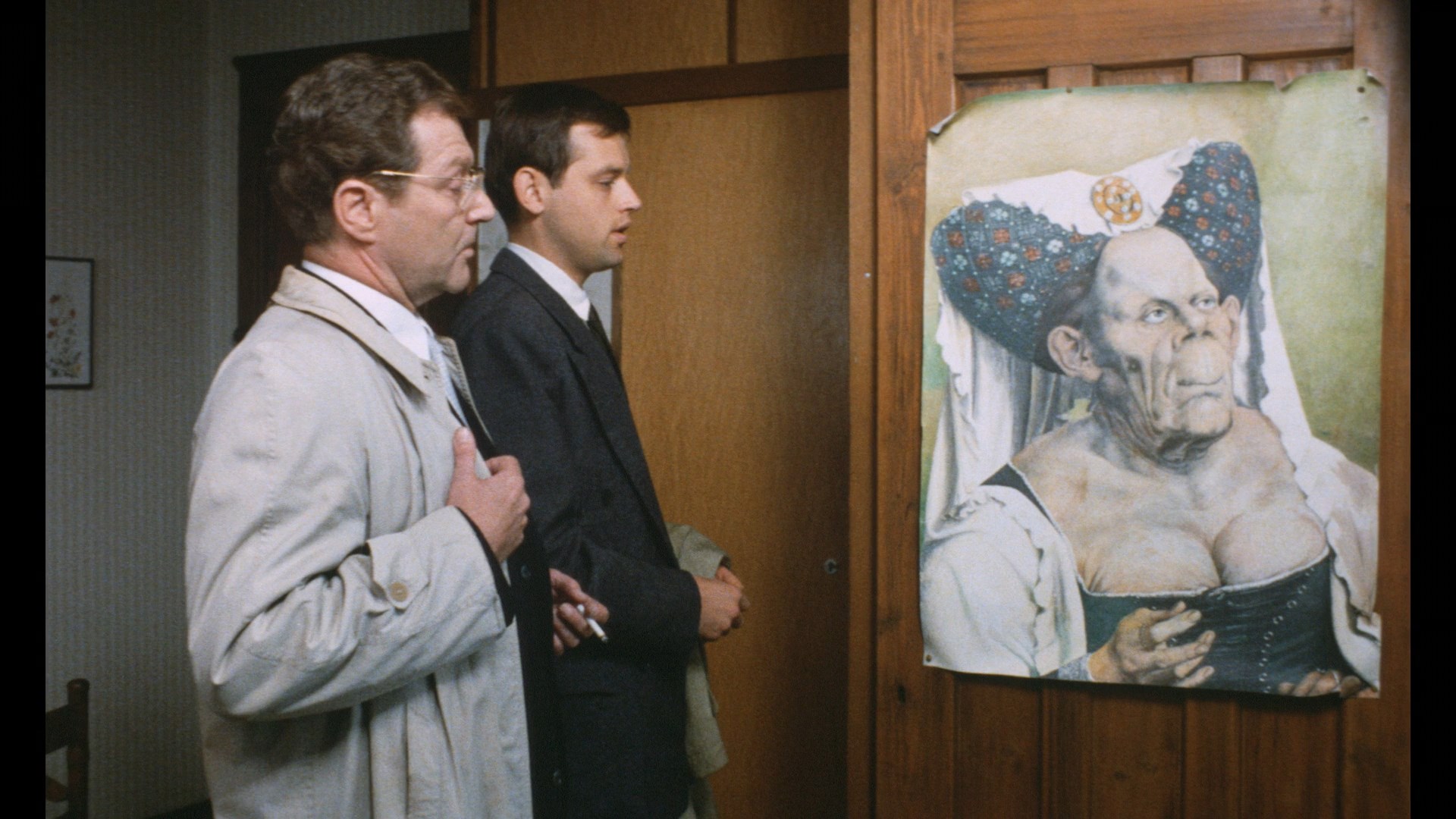 precedent out there to compare!), while the Dutch DTS-HD MA and LPCM 2.0 mono tracks are also in solid shape (with optional English subtitles). Extras include an interview on the set with Kristel and de Groot (7m35s), with Kristel giving a cheeky answer about reports that she did this film for no money, and an earlier '77 interview with Kristel (11m2s) during the making of Goodbye, Emmanuelle; the latter piece is more interesting as she's candid about her frustrations being typecast in sexy roles, her thoughts on her recent projects (including a funny bit about the unnamed The Fifth Musketeer), the way she handles success, and her rationale for choosing which films to do next. Also included are a poster and photo gallery, the theatrical trailer, and a TV spot (listed as a promo). The initial limited editions of 2,5000 Blu-rays, and 1,000 DVDs come with a 40-page illustrated booklet with liner notes by Richey and a poster showcasing the new art by Gilles Vranckx. Initial orders directly from the label also come with a bonus DVD featuring an interview with Just Jaeckin, so judge your Kristel mania accordingly.
precedent out there to compare!), while the Dutch DTS-HD MA and LPCM 2.0 mono tracks are also in solid shape (with optional English subtitles). Extras include an interview on the set with Kristel and de Groot (7m35s), with Kristel giving a cheeky answer about reports that she did this film for no money, and an earlier '77 interview with Kristel (11m2s) during the making of Goodbye, Emmanuelle; the latter piece is more interesting as she's candid about her frustrations being typecast in sexy roles, her thoughts on her recent projects (including a funny bit about the unnamed The Fifth Musketeer), the way she handles success, and her rationale for choosing which films to do next. Also included are a poster and photo gallery, the theatrical trailer, and a TV spot (listed as a promo). The initial limited editions of 2,5000 Blu-rays, and 1,000 DVDs come with a 40-page illustrated booklet with liner notes by Richey and a poster showcasing the new art by Gilles Vranckx. Initial orders directly from the label also come with a bonus DVD featuring an interview with Just Jaeckin, so judge your Kristel mania accordingly.![]()